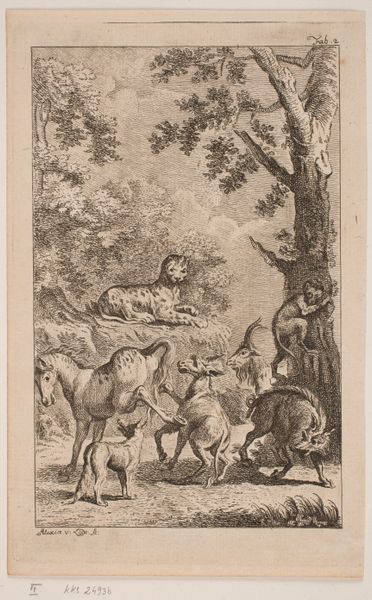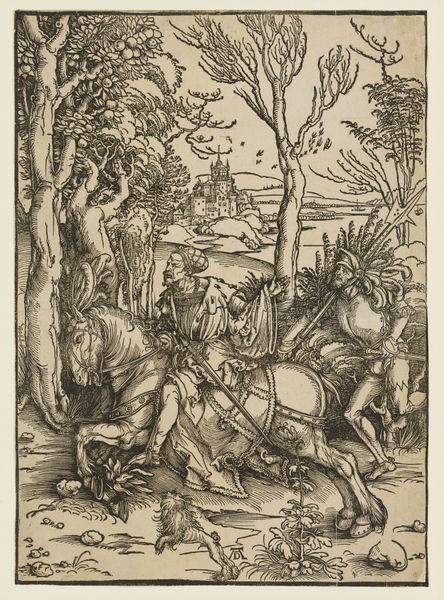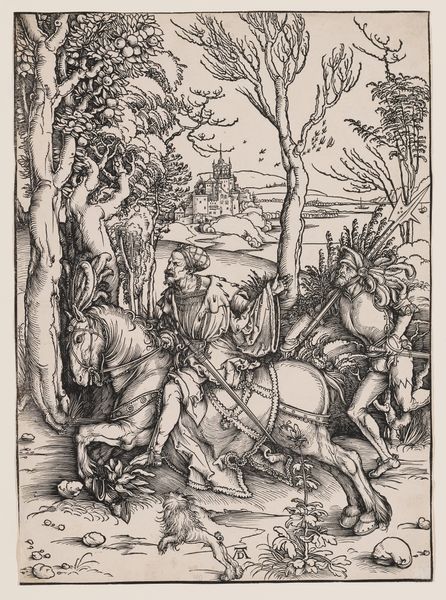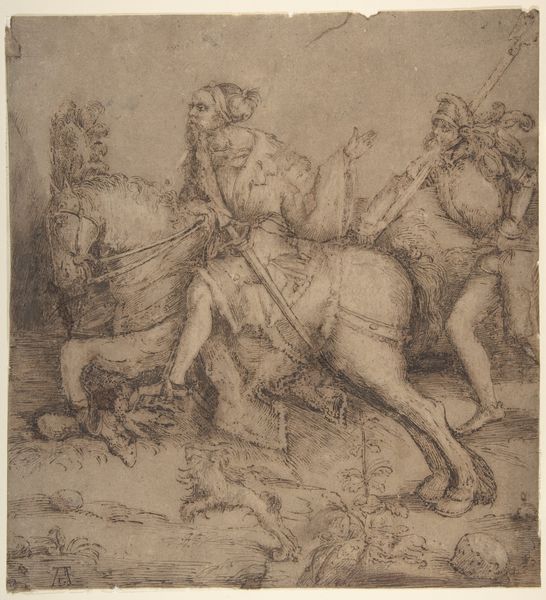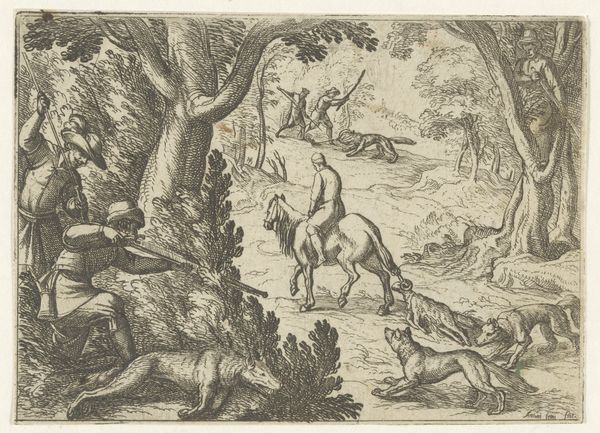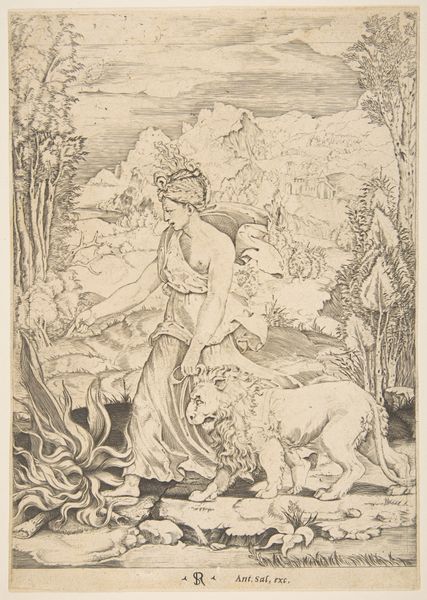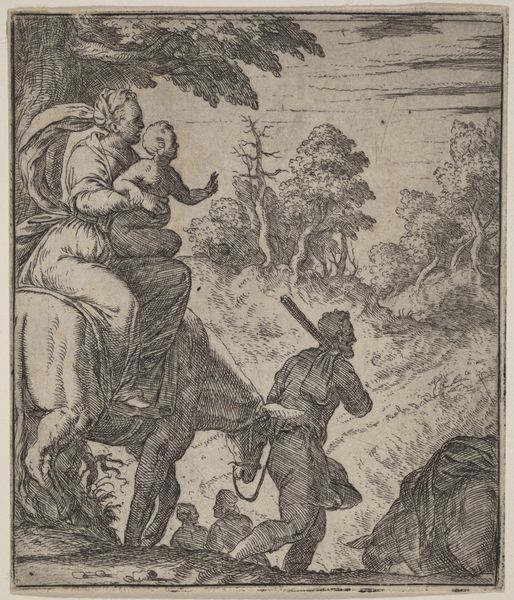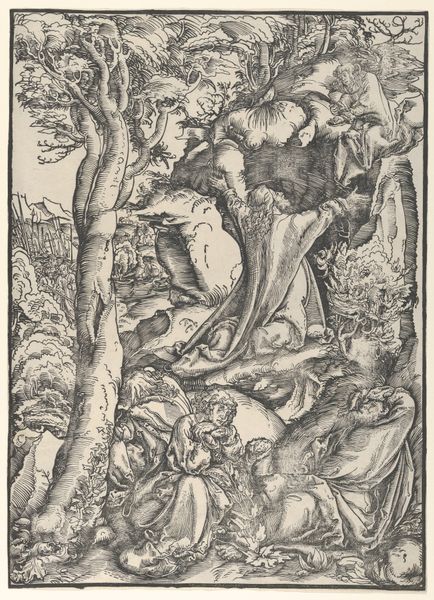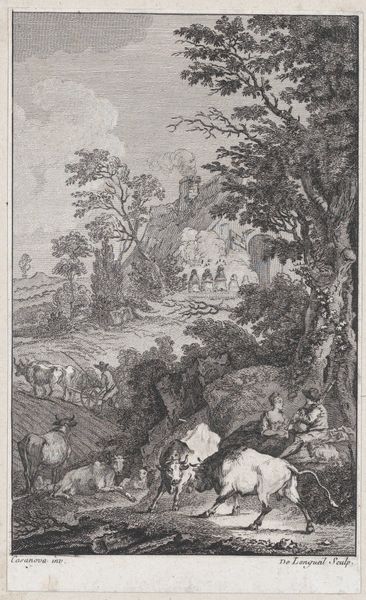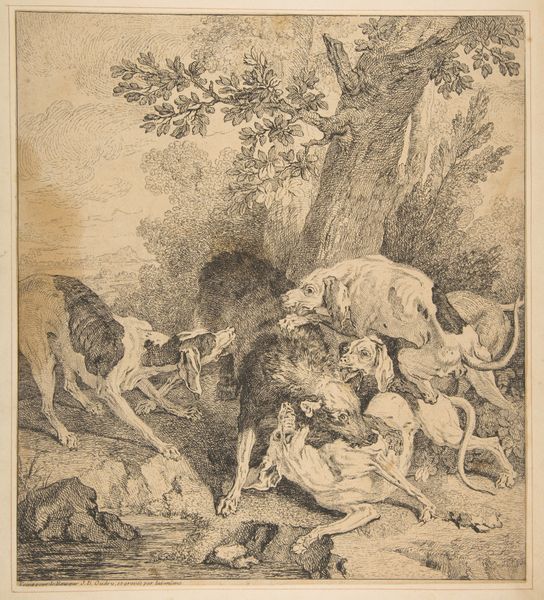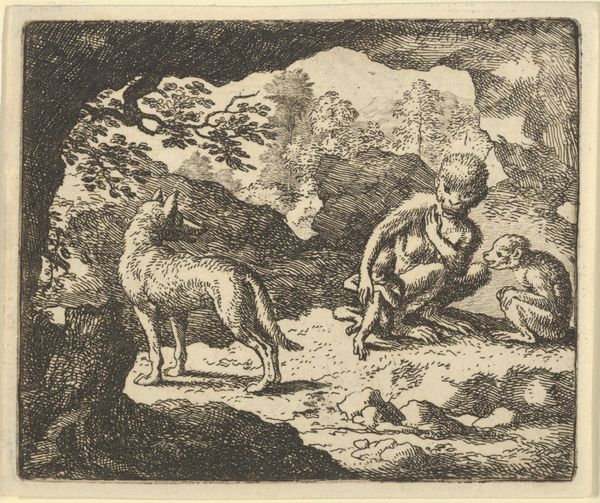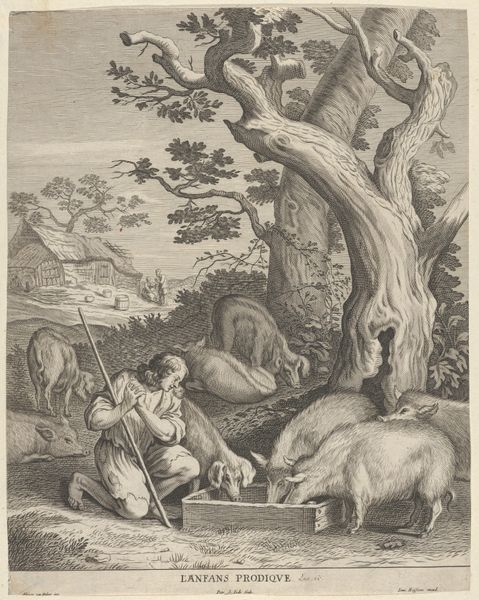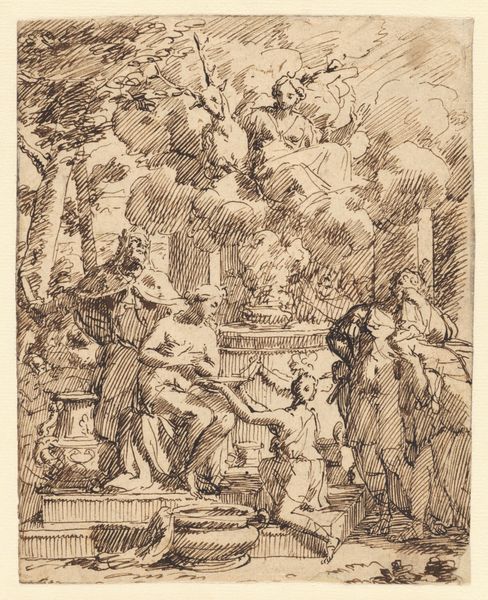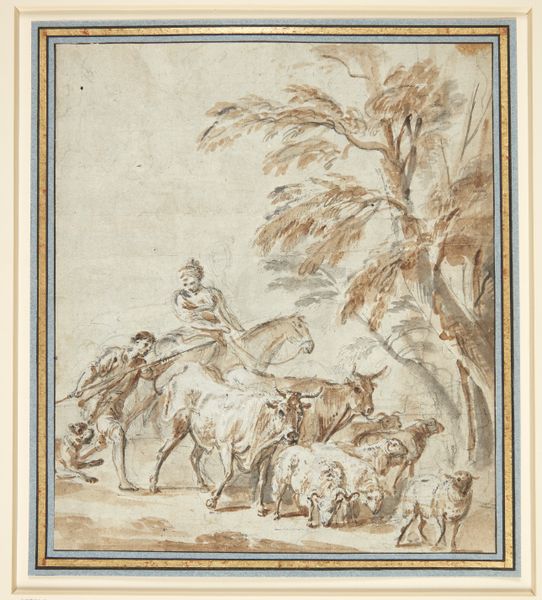
drawing, print, ink, pen
#
drawing
#
ink drawing
#
narrative-art
#
baroque
# print
#
pen sketch
#
pencil sketch
#
dog
#
landscape
#
figuration
#
ink
#
cross
#
horse
#
pen
#
genre-painting
#
history-painting
Dimensions: 7 3/16 x 5 5/8 in. (18.3 x 14.3 cm)
Copyright: Public Domain
This 15th-century engraving, titled "The Vision of St. Eustace," was made by an anonymous artist using an intaglio process on metal. The image is created by incising lines into a metal plate, which holds ink to produce a print. Notice how the lines articulate texture, weight, and form – from the knight’s armor to the fur of the dogs and horse. This level of detail demanded incredible skill, time, and labor, reflecting the specialized craftsmanship of printmaking. The process involved not only artistic design but also metalworking techniques, aligning it with craft traditions. The subject matter is also deeply rooted in social context, as the tale of St. Eustace, who converted to Christianity after seeing a vision of a crucifix between a stag's antlers, was a popular allegorical subject during the Medieval and Renaissance periods. By considering the materials, methods, and the cultural narrative intertwined in this engraving, we see how craft and art converge, enriching our understanding of the artwork’s significance.
Comments
No comments
Be the first to comment and join the conversation on the ultimate creative platform.
